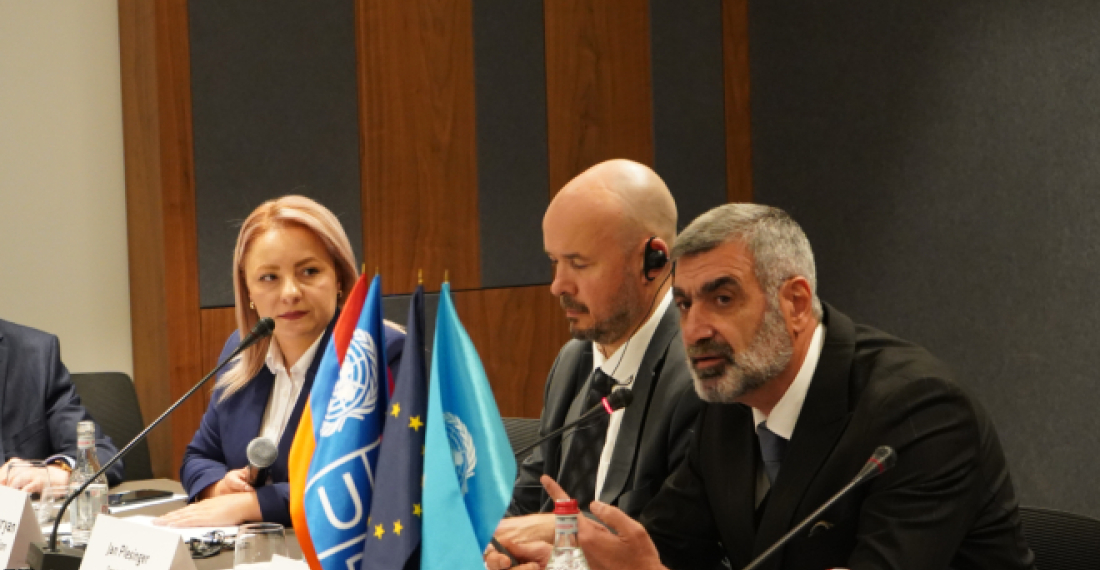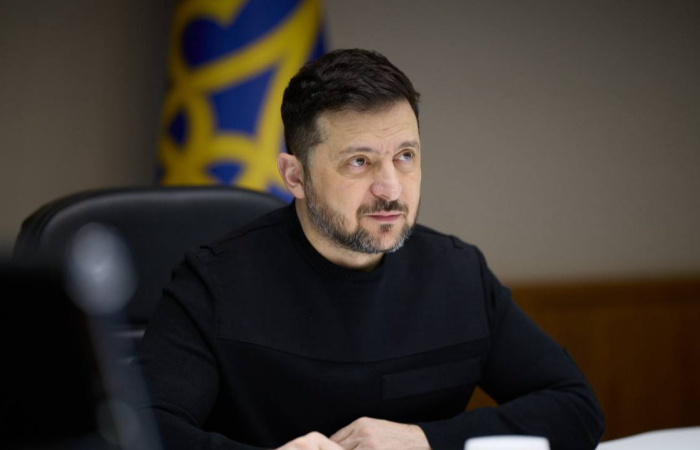On Thursday 3 April the “National Mine Action Coordination Platform,” in collaboration with the UN Development Programme (UNDP), held its annual workshop in Armenia to mark the International Day for Mine Awareness and Assistance in Mine Action observed globally on 4 April.
Key note interventions were made by representatives of the Center for Humanitarian Demining and Expertise (CHDE) in Armenia, Jan Plešinger, the deputy head of the European Union Delegation to Armenia and Konstantin Sokulskiy, the UNDP deputy resident representative in Armenia.
The event highlighted the ongoing challenges in the mine action sector, with CHDE Director Vaghinak Sargsyan commending both local and international organizations, including the EU and UNDP, for their collaboration in addressing landmine issues in Armenia.
Vaghinak Sargsyan pointed out that landmine awareness remains an important tasks as “one person in the world suffers from landmines and explosive ordnance every minute, 30% of the total victims are children”.
Guests also observed a live demonstration on safe demining procedures conducted by CHDE specialists. In addition, they received information on landmine risk education and had the chance to ask questions about various demining processes.







